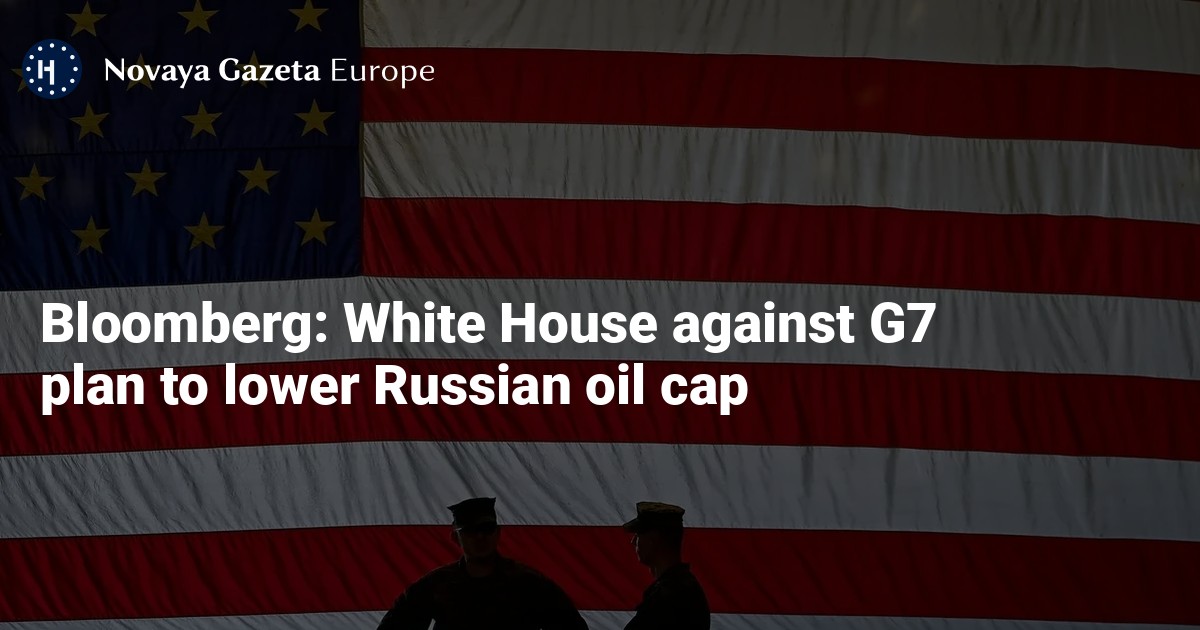




Photo: EPA-EFE/STEVEN SAPHORE
The US is currently unwilling to agree to a proposal by the UK and European Union to lower the existing G7 price cap on Russian oil sales in order to further reduce Russia’s oil revenues, Bloomberg reported on Friday, citing sources familiar with the matter.
The EU and the UK are currently seeking to reduce the existing G7 price cap on Russian oil from $60 to $45 per barrel, to reduce Moscow’s ability to finance its war in Ukraine.
According to Bloomberg’s sources, who spoke on the condition of anonymity, while some American officials are hopeful that President Donald Trump will decide to support the measure, the White House is likely to oppose the signing of a new agreement at the upcoming G7 summit in Canada on 15-17 June.
Even if Trump does not choose to endorse the proposal, the EU and UK could try to lower the cap by themselves, according to one source cited by Bloomberg, as most of Russia’s oil sails through or near European waters. Still, Brussels and London would prefer to have Washington’s support in order to better enforce the initiative, they said.
When queried by Bloomberg on Friday, the White House declined to comment.
On Wednesday, Kremlin spokesperson Dmitry Peskov spoke out against the legality of the G7’s price cap and criticised the potential effects such a move would have on international energy markets.
“Russia has already gained some very useful experience minimising the negative effects of such decisions,” he added, downplaying the existing price cap’s impact on the Russian economy.
G7 countries originally agreed to a price cap on Russian oil in late 2022. It was designed to prevent the sale of Russian oil to third countries using Western shipping insurance providers or intermediary services, provided the price was no more than $60. The EU included a lower cap as part of its most recent sanctions package, its 18th in total, introduced in opposition to the invasion of Ukraine.
